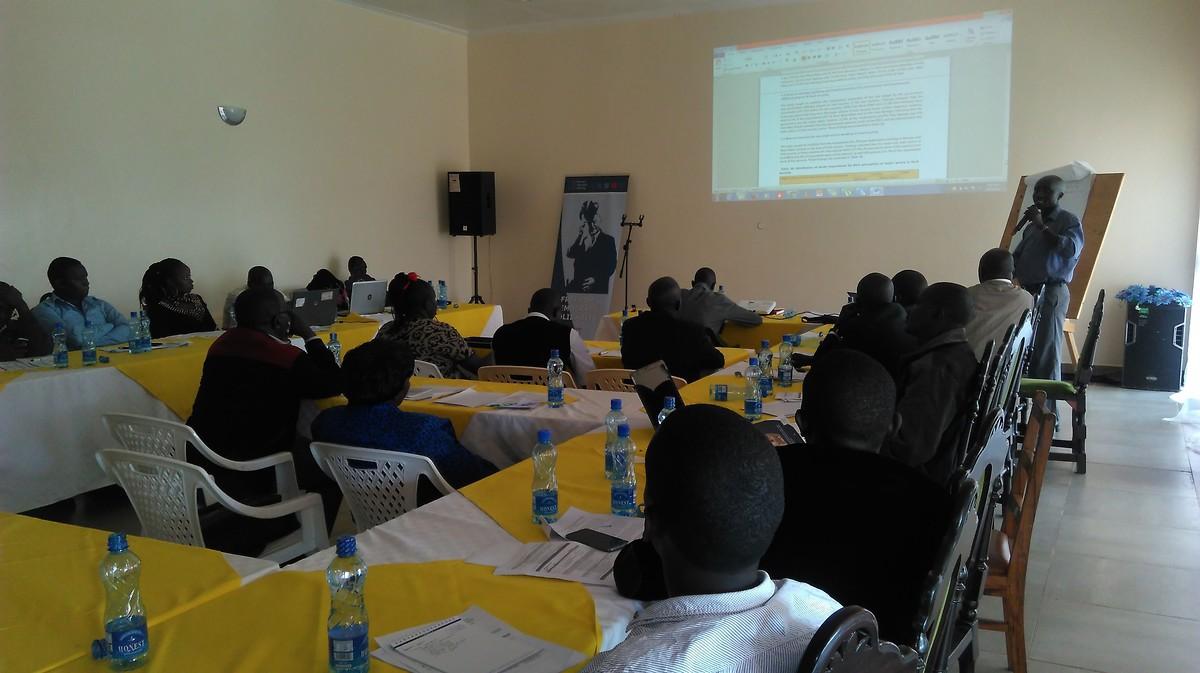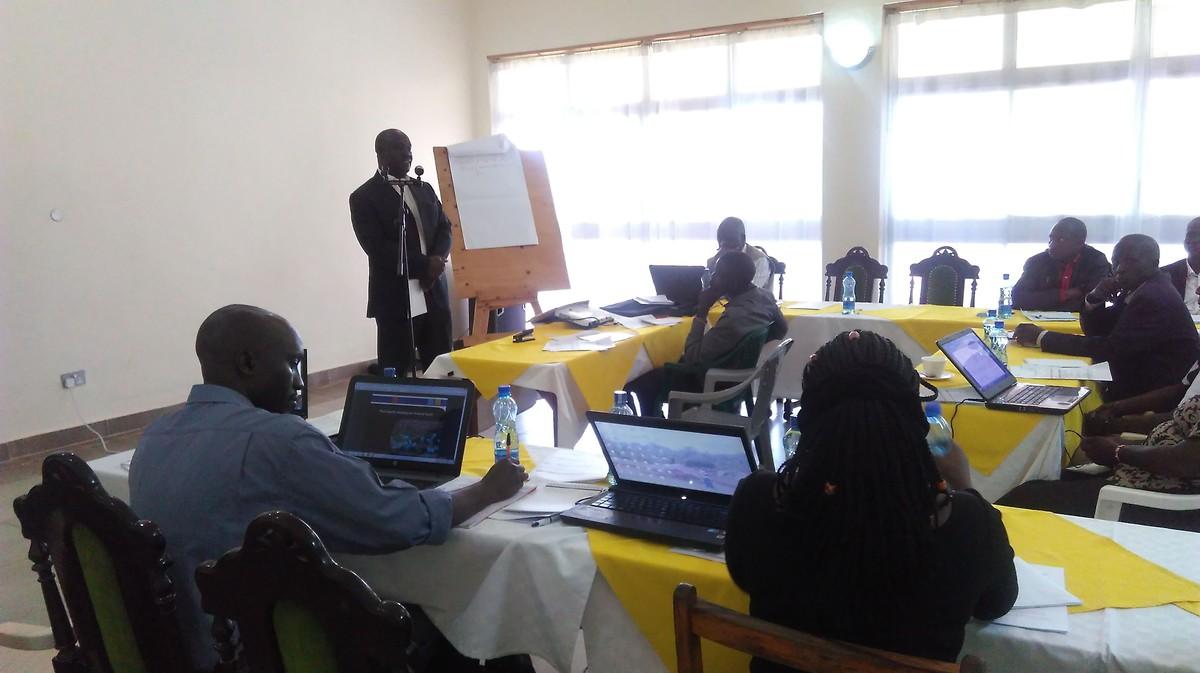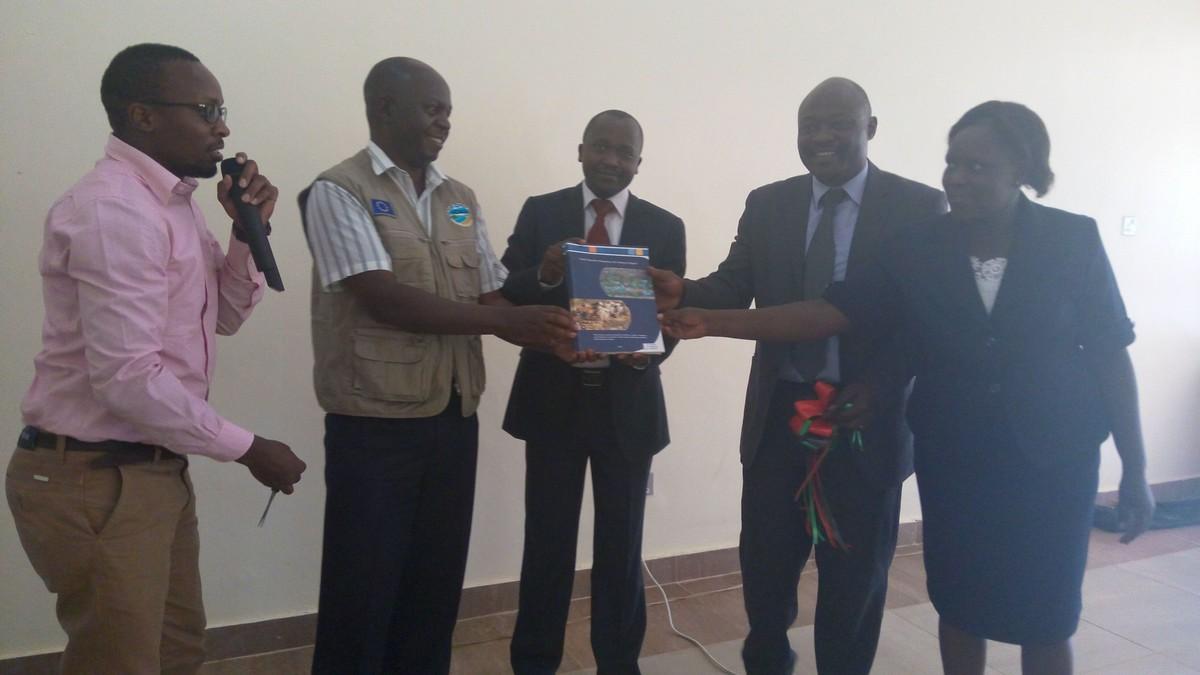Within the Months of April, May and June 2016, KAS with her partners conducted an Early Warning system analysis and a food security mapping and analysis study in West Pokot and Baringo Counties with the aim of identifying policy issues, actors, structures, and policies among others in the field of food security. It is in this regard that KAS undertook a 2 days seminar to present the findings of the two reports, inviting stakeholders to not only consume the findings and recommendations from the two reports but also input into the development of a county level policy brief and uptake strategy. A total of 34 participants were in attendance comprising of representatives from the Non State Actors within and outside the umbrella of the ASAL Stakeholder’s Forum Baringo Chapter, County Government –Relevant departments-education, water, health, agriculture, livestock, public works etc., National Government structures and institutions i.e. NDMA, the Metrological Department, Agricultural Sector Development Support Programme (ASDSP), and the National Government Administration Officers. The seminar was graced by the Deputy Governor of Baringo County who also launched the Food Security Mapping and Analysis Report giving a brief insight on issues affecting the agricultural and livestock sectors in the county, such as the present land tenure system and insecurity particularly in Baringo East and how such research reports were imperative in updating current information.
The two day dissemination workshop also engaged a number of speakers who shared on a number of themes that ranged from: demystifying the role of the ASDSP in improving capacities to ensure access to food security by strengthening sector coordination and programming, environmental and social resilience as well as Value Chain Development; improving food security using information emanating from the drought early warning system; the role of the county legislature in promoting food security legislative landscape; and last but not least, the role of the Departments of Water and Irrigation, and Livestock, Agriculture and Fisheries in improving food production in Baringo County.
Upon presentation of the report, participants were able to engage with the relevant institutions, asking and gaining series of answers concerning issues or findings that emanated from the mapping report. For instance, one question asked was what the county government was doing to ensure disease control and in particular mitigating the tick infestation in Kimalel region within Baringo Central Sub County. The Department of Livestock indicated for this specific case that they have factored the construction of a county veterinary lab in the 2016/2017 budget to improve on veterinary services, research and earlier trend diagnosis. In addition, it was also agreed that allocations have also been made to have more cattle dips of which Kimalel is also targeted. On the progress of farmers cooperatives to ensure distribution of food to low land areas that faces the threat of prolonged drought, ASDSP indicated that she has helped to form five farmers cooperatives societies in Kasoiyo, Baringo Mosop,Tuiyobei and Perkarra, although still weak in terms of capacity.
To be able to come up with a sound policy brief and an uptake and communication strategy to share in implementing some of the recommendations from the reports, the participants were grouped based on sectors that in one way or the other, affect the availability of food in the county. The sectors included: Agriculture and livestock, Education, Health and Nutrition, Infrastructure (roads), and peace and security. It’s based on this that the participants gave their suggestion and ideas on how they could best contribute to implementing the recommendations from the Mapping report, an indicator that KAS will be monitoring. In addition to infusing stakeholders voices into the development of the policy brief, group discussions were held under the five sectors but guided by the following pillars:
1.What the government should do per sector with regard to food security?
2.What the community should do per sector with regard to food security?
3.What political leaders should do per sector with regard to food security?
4.What non state actor should do per sector with regard to food security?










